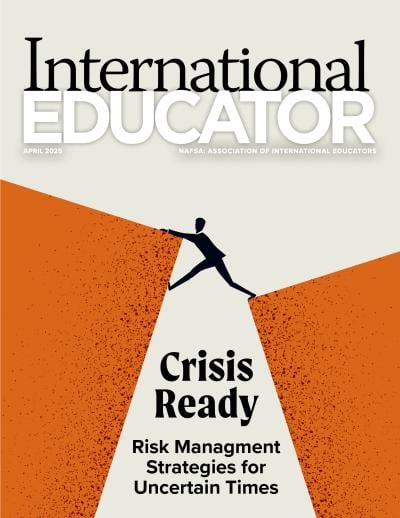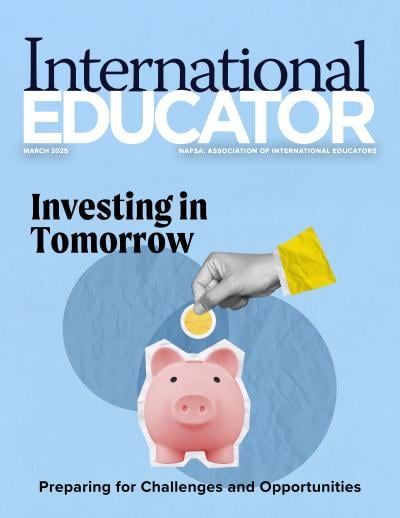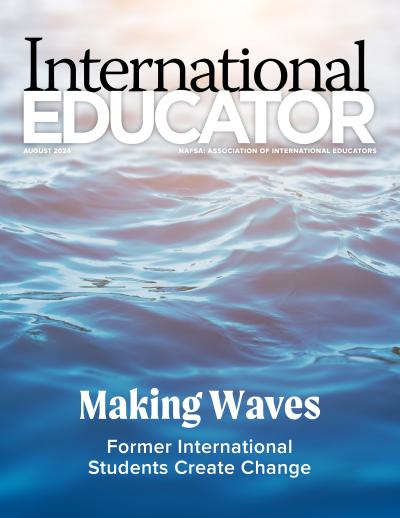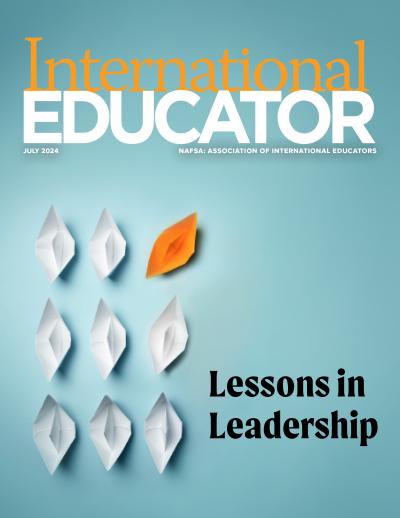International Students and Scholars at Risk: What to Know Right Now

Since mid-March, NAFSA has been collecting reports of international students and scholars who have had their visas revoked, their records terminated in SEVIS, and/or who have been arrested or detained. Based on our initial analysis of these reports, extensive conversations with our members, and consultation with immigration attorneys, NAFSA is able to provide some preliminary information about the size, scale, and nature of the enforcement actions affecting international students and scholars in the United States.
Below are eight important things to understand about the current situation—and two actions you can take.
- As of April 14, there have been almost 1,300 reports of international students and scholars either having their visa revoked and/or their record in SEVIS terminated, thereby jeopardizing their legal status in the United States.
- Undergraduate, graduate, and Optional Practical Training (OPT)/STEM OPT students are affected.
- There is no clear pattern or trend in the nationalities of the affected students. Students from all regions of the world are being affected.
- The visa revocations and SEVIS record terminations are happening to students at all types of higher education institutions, from community colleges to R-1 research institutions, and in all regions of the United States.
- The cause given for the SEVIS record termination has changed. When NAFSA first became aware of these terminations, the rationale given was tied to sections of the Immigration and Naturalization Act and references to being a foreign policy threat. Now the reason given is “other“ with a vague reference to a criminal records check “and/or“ a visa revocation.
- There is still no transparency on the grounds for these revocations, nor is there any clear process for determining what the charges are against the students. Due process is woefully absent.
- Students are rightfully terrified and in need of support—and in many cases legal advice. Colleges and universities have an important role to play in attending to the mental health of their students as well as their academic success. We’re aware of institutions providing drop-in hours for Q&A sessions with mental health professionals and offices of student support; offering referrals to immigration attorneys; and even providing financial assistance to cover legal consultation fees.
- International offices, the institution’s general counsel, communications offices, human resources, student affairs, offices of the registrar and others should all be in close communication as the facts on the ground shift daily.
NAFSA is dedicated to supporting members as they work tirelessly to support international student and scholars. Here’s what you can do:
Connect with peers.
NAFSA will continue to provide resources and timely convenings so members of the community can ask questions and hear directly from experts. NAFSA will hold its next town hall, Holding Space: Fostering Wellbeing, Building Resilience and Community of Care in Uncertain Times on April 15. Members are invited to a special online Q&A with immigration attorneys Bernard Wolfsdorf and Brad Banias on April 17. They will discuss how they and their colleagues are pursuing temporary restraining orders and/or preliminary injunctions in federal district court.
The U.S. for Success Coalition is leading an advocacy campaign that urges Congress to convey to the Secretaries of State and Homeland Security that welcoming international students and scholars is in the country’s national interest. •
About International Educator
International Educator is NAFSA’s flagship publication and has been published continually since 1990. As a record of the association and the field of international education, IE includes articles on a variety of topics, trends, and issues facing NAFSA members and their work.
From in-depth features to interviews with thought leaders and columns tailored to NAFSA’s knowledge communities, IE provides must-read context and analysis to those working around the globe to advance international education and exchange.
About NAFSA
NAFSA: Association of International Educators is the world's largest nonprofit association dedicated to international education and exchange. NAFSA serves the needs of more than 10,000 members and international educators worldwide at more than 3,500 institutions, in over 150 countries.
NAFSA membership provides you with unmatched access to best-in-class programs, critical updates, and resources to professionalize your practice. Members gain unrivaled opportunities to partner with experienced international education leaders.











